Kidney stones are as painful as they sound. The small deposits of minerals and salt that form in your kidneys are one of the most excruciating pains you can experience. Even worse, if you are not careful, the condition can become chronic, and you could end up with a slew of kidney complications. Therefore, understanding the kidney stone symptoms is essential. If you experience any, seek medical attention immediately.
What are kidney stones?
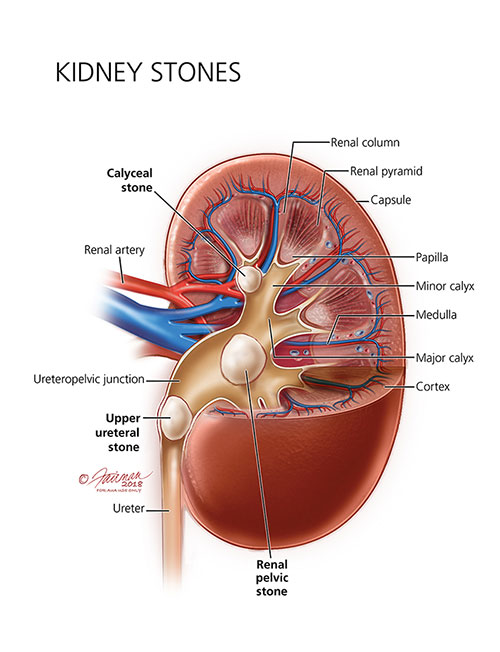
Before we delve into the symptoms, let us first understand what kidney stones are.
A brief overview of kidney stones
The formation of kidney stones occurs when waste products in urine do not get adequately eliminated, leading to the buildup of materials that form crystals. With time, these crystals aggregate to result in small stones that can be extremely painful as they try to pass through the urinary tract.
Risk factors of kidney stones
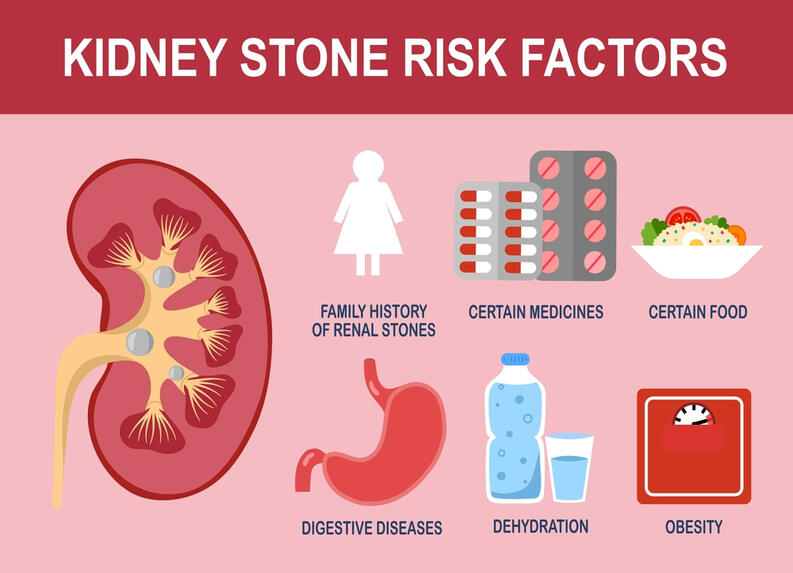
Now that we know what kidney stones are let’s look at the group of people that are more prone to develop this condition.
Age
Kidney stones are more common in people between the ages of 30 and 60.
Gender
Men are more likely to develop kidney stones than women.
Family history
If someone in your immediate family has had kidney stones, you are more likely to develop them as well.
Dehydration
Not drinking enough water can lead to the formation of kidney stones.
Diet
A diet high in sodium, sugar, and animal protein increases your risk of developing kidney stones.
Obesity
Obesity increases your risk of developing kidney stones.
Digestive diseases
Certain digestive diseases, such as inflammatory bowel disease and chronic diarrhea, can lead to the formation of kidney stones.
Some medications
Some medications, such as diuretics and antacids, can increase your risk of developing kidney stones.
Symptoms of kidney stones
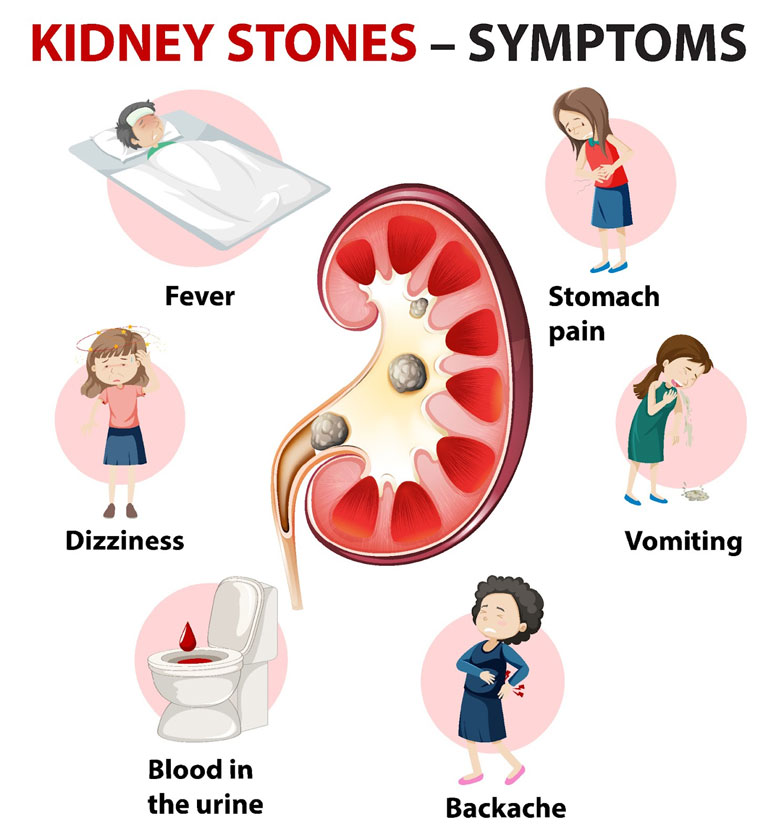
The following symptoms may signal the presence of kidney stones. It is essential to watch out for these symptoms as the condition can quickly deteriorate, leading to emergency hospitalization.
- Pain in your back or side
- Pain during urination
- Cloudy urine with a foul odor
- Frequent urination
- Nausea and/or vomiting
- Fever and chills
- Abdominal pain
Types of kidney stones

Kidney stones come in different types, each exhibiting distinct characteristics.
Calcium stones
Calcium stones are the most common type of kidney stone, accounting for 80% of cases.
Struvite stones
Struvite stones are usually the result of a urinary tract infection.
Uric acid stones
Uric acid stones are more common in people with gout and those who eat a high-purine diet.
Cystine stones
Cystine stones are rare and are caused by a genetic disorder.
Diagnosis and treatment of kidney stones
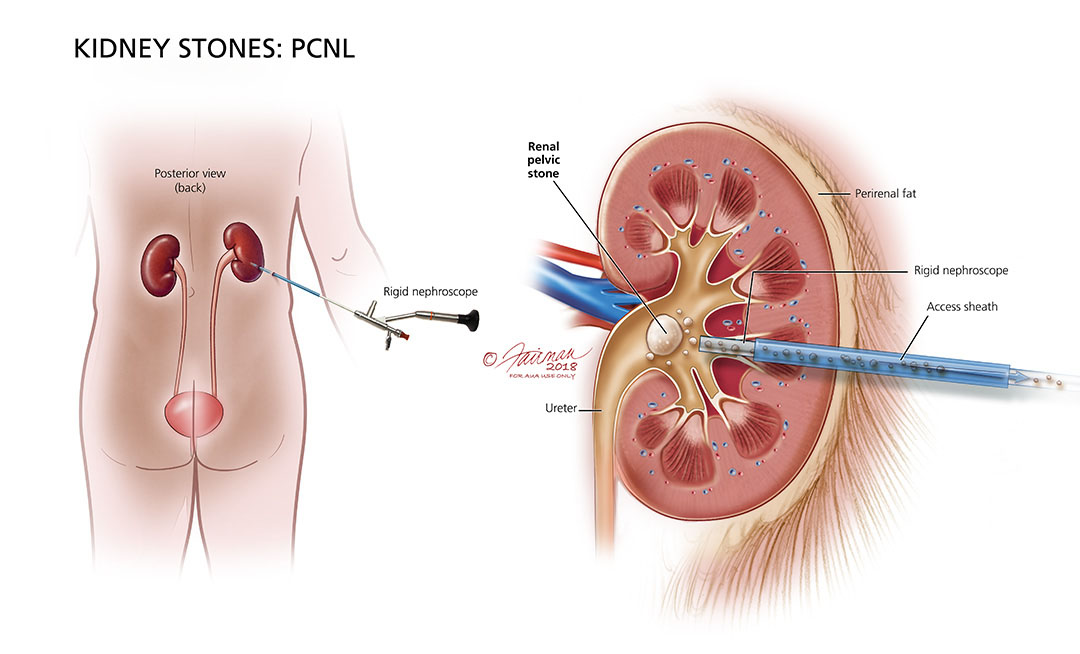
Without early diagnosis and treatment, kidney stones can lead to life-threatening complications. Don’t hesitate to seek professional help if you experience any of the above symptoms.
Diagnosis
Your doctor may perform various tests to diagnose kidney stones, such as blood tests, urine tests, and imaging tests.
Pain management
Pain medication can help manage the pain associated with kidney stones.
Medication
Depending on the type of kidney stone, medication can help dissolve the stones.
Surgery
In severe cases, surgery may be necessary to remove the kidney stones.
Prevention of kidney stones
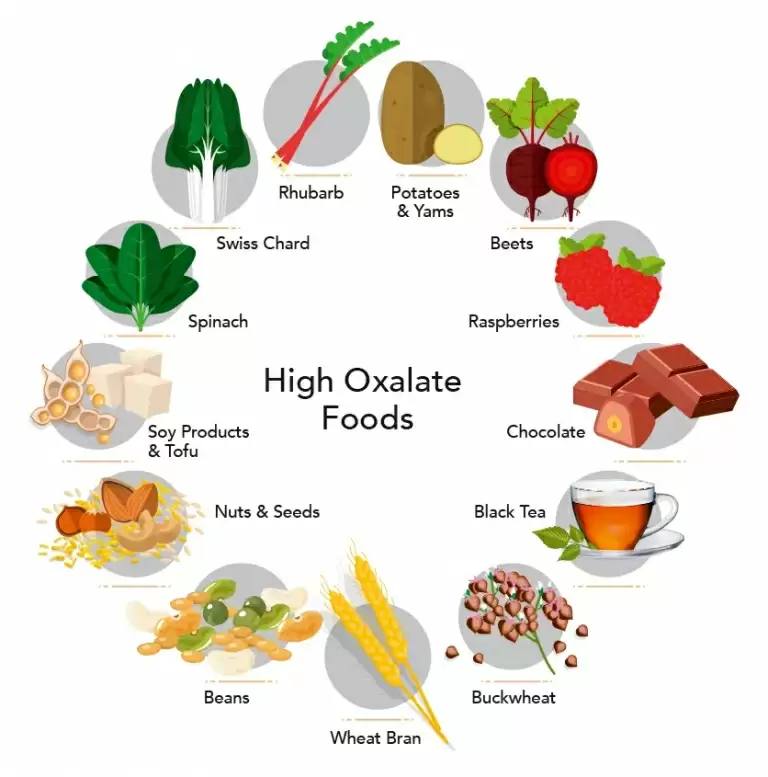
As they say, prevention is better than cure. Therefore, to avoid developing kidney stones, follow these tips.
- Stay hydrated
- Reduce salt intake
- Reduce animal protein
- Avoid foods high in oxalate
- Be cautious with calcium supplements
Complications of kidney stones
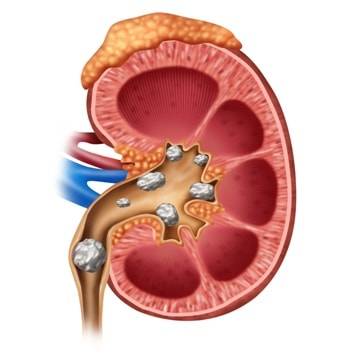
If left untreated, kidney stones can cause severe damage to your kidneys. So, in this section, we will look at the potential complications of untreated kidney stones.
Chronic kidney disease
Repeated kidney stone formation can lead to chronic kidney disease.
Obstruction of the urinary tract
Kidney stones can cause a blockage in the urinary tract, causing pain and discomfort.
Urinary tract infections
Kidney stones can increase your risk of developing urinary tract infections.
Frequently asked questions (FAQ)
Here are some of the most frequently asked questions about kidney stones.
Can I exercise with kidney stones?
Yes, light to moderate exercise can help pass kidney stones.
Can I eat during kidney stones?
Yes, you can eat during kidney stones, but it’s important to stick to a healthy, low-oxalate diet.
What painkillers are safe for kidney stones?
Acetaminophen and ibuprofen are safe painkillers for kidney stones.
How long does it take to pass a kidney stone?
It can take anywhere from a few days to several weeks to pass a kidney stone.
When should I call a doctor for kidney stones?
You should call a doctor if you experience any symptoms of kidney stones, such as severe pain or fever.
Conclusion
Kidney stones are a very painful condition that can have serious complications. It is important to understand the symptoms and seek prompt treatment, while also following preventive measures to avoid developing the condition.
Leave a comment